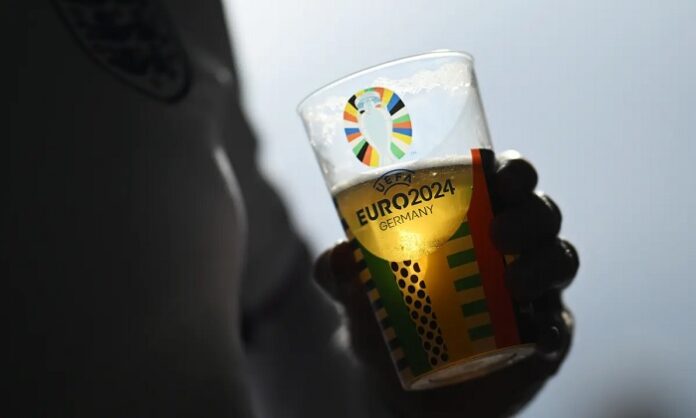Supermarkets reduced beer and snack prices during Euro 2024, enticing fans to shop at stores instead of visiting pubs or fan zones.
This strategy contributed to grocery inflation falling to 1.6% in July, its lowest since September 2021, as reported by Sky News.
The consistent decline in grocery inflation marks the 17th consecutive month of reduction following the peak seen after Russia’s invasion of Ukraine.
Prices were rising fastest in markets such as vitamins/minerals/supplements and chilled fruit juices, while still falling in categories like toilet rolls, butter, and dog food.
Euro 2024 beer price war may have helped grocery inflation fall below 2% https://t.co/xjccxgSmLJ
— Sky News (@SkyNews) July 16, 2024
Kantar Worldpanel, which tracks supermarket prices, revealed that beer sales jumped by 13% on match days, with non-alcoholic beer sales soaring by 38%. Additionally, sales of crisps and snacks increased by 5%.
Fraser McKevitt, head of retail and consumer insight at Kantar, mentioned that despite England’s exit, there was a positive outcome for the grocery industry.
Spending on no and low-alcohol beer surged as many matches were played on school nights, reflecting a trend towards moderation among some fans.
Promotional activity has often been credited by Kantar in the past for raising sales and slowing inflation, with Christmas seeing peak discount activity.
More detailed data on the role played by beer sales during Euro 2024 was expected later, just 24 hours before official inflation figures covering June are released.
Pubs look to share in £48m Euro 2024 final beer boom https://t.co/nfitiDuQMN
— tradefxway (@ASPIRETRADER1) July 13, 2024
Shopping trips rose by 2% during the tournament period.
This trend paralleled festive promotional activities, highlighting the significant impact of events on consumer behavior, as noted by BBC News.
Economists predict the consumer prices index will fall to 1.9%, influencing the Bank of England’s decision on a potential interest rate cut on August 1.
The promotional activities not only benefited supermarkets but also sparked stronger competition between chains in areas such as beer and snacks.




